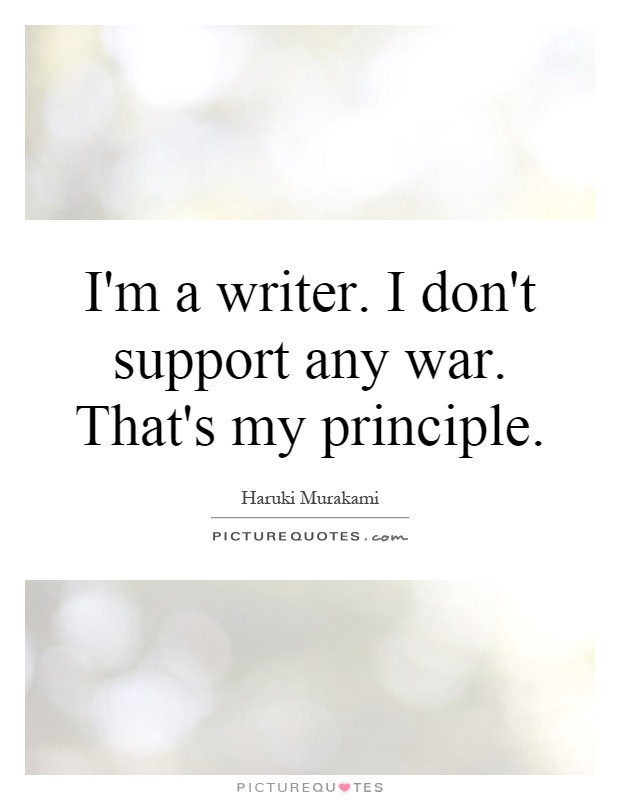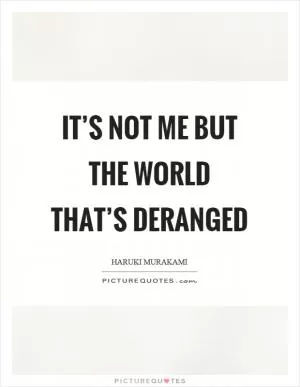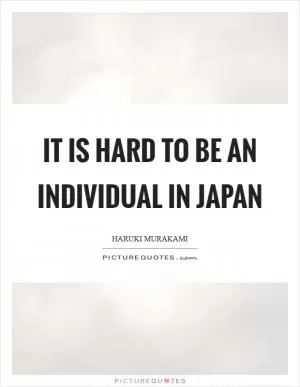I'm a writer. I don't support any war. That's my principle

I'm a writer. I don't support any war. That's my principle
Haruki Murakami, the renowned Japanese author, is known for his unique storytelling style and thought-provoking themes. One of the recurring themes in his works is the impact of war on individuals and society as a whole. Murakami himself has been vocal about his stance on war, stating, "I'm a writer. I don't support any war. That's my principle."This statement reflects Murakami's deep-seated belief in the futility and devastation caused by armed conflict. Throughout his novels, such as "Norwegian Wood" and "Kafka on the Shore," Murakami explores the psychological and emotional toll that war takes on individuals, often focusing on the trauma and loss experienced by those directly affected by conflict.
Murakami's anti-war stance is not just a personal belief but also a central theme in his writing. He uses his novels to shed light on the human cost of war, portraying the struggles of characters who are caught in the midst of violence and chaos. By delving into the complexities of war and its aftermath, Murakami challenges readers to confront the harsh realities of armed conflict and consider the long-lasting effects it has on individuals and society.
In addition to his fictional works, Murakami has also written essays and articles expressing his views on war and peace. He has been a vocal critic of Japan's military involvement in conflicts around the world and has called for a more peaceful and diplomatic approach to resolving international disputes.
Murakami's commitment to pacifism and his refusal to support any form of war are not just moral principles but also a reflection of his deep empathy for the suffering of others. Through his writing, he seeks to raise awareness about the human cost of war and inspire readers to strive for a more peaceful and compassionate world.












 Friendship Quotes
Friendship Quotes Love Quotes
Love Quotes Life Quotes
Life Quotes Funny Quotes
Funny Quotes Motivational Quotes
Motivational Quotes Inspirational Quotes
Inspirational Quotes